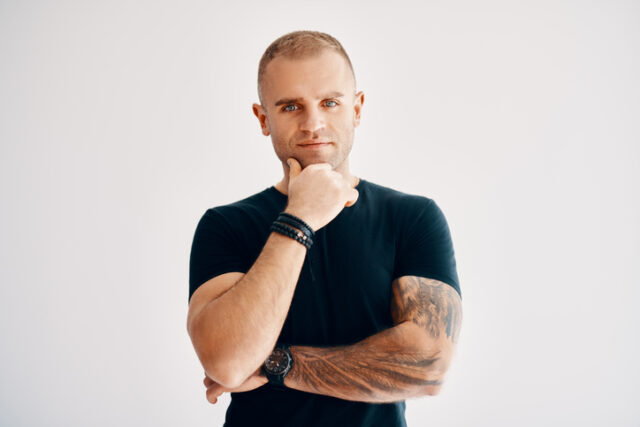Peace doesn’t come from meditating, lighting a candle, or going off-grid (though those things are appealing at times).

Most of the time, it tends to have a lot to do with who you allow into your space. The truth is, some people just bring chaos. Whether it’s emotional messiness, subtle drama, or flat-out manipulation, keeping the wrong energy around makes it harder to feel calm or grounded. With these types of people, it’s certainly worth creating some distance from if you want to protect your peace and sanity. You really don’t need the drama and disappointment they’ll bring into your life.
1. The chronic guilt-tripper

This is the person who makes you feel bad for setting boundaries or saying no. No matter what you do, they’ll find a way to turn it around and make you feel selfish, cold, or like you’re letting them down. Eventually, this wears you down. You start doing things just to avoid their emotional reactions rather than because you want to. The constant pressure sort of eats away at your self-respect and leaves no room for peace.
2. The constant drama magnet

Something is always going wrong in their world—and you’re always somehow involved. They feed off the chaos, whether it’s relationship problems, work fallouts, or friend group explosions. Plus, they expect you to be their therapist every time. This isn’t the same as helping a friend through hard times. It’s about those who live in a state of nonstop stress and drag everyone else into it. It’s exhausting, and peace can’t grow when you’re always bracing for their next meltdown.
3. The undercover competitor

They act like they’re cheering you on, but everything feels like a subtle contest. If you share good news, they one-up it. If you’re struggling, they suddenly are too, but more dramatically. These relationships can feel confusing because they’re not openly hostile. However, constant comparison steals your joy and creates subtle tension. True peace comes from being around people who celebrate you without keeping score.
4. The passive-aggressive communicator

They don’t say what’s wrong directly. Instead, you get the cold tone, the vague comments, or the social media posts that are clearly aimed at you. It’s like playing emotional charades all the time. That kind of communication destroys trust and builds resentment. Peace needs honesty, not people who expect you to read their mind or decode their mood swings.
5. The boundary bulldozer

They ignore your limits. You say you’re busy, they call anyway. You set a clear line, and they act like you’re being difficult. It’s not that they don’t understand boundaries. They just don’t think yours matter. Trying to explain yourself constantly gets tiring, and when someone repeatedly crosses lines you’ve clearly drawn, it’s a sign they’re not interested in respecting your peace—just their own convenience.
6. The energy leech

You leave every interaction with them feeling drained. Maybe it’s their negativity, maybe it’s how much they talk about themselves, or maybe they just always seem to need something from you. Either way, it’s never a two-way street. Energy is precious, and when someone constantly takes more than they give, even without meaning to, it slowly but shortly eats away at your emotional bandwidth. Peace often means spending less time with people who leave you feeling empty.
7. The fake nice one

They smile, they compliment, they act like your biggest fan, but there’s always something just a bit off. You hear what they’ve said about other people, and you start wondering what they say about you. This type is tricky because they seem kind on the surface. But peace requires trust, and you can’t relax around someone who feels two-faced. Eventually, the mask slips, and it usually leaves damage behind.
8. The chronic victim

No matter what happens, they’re always the one who’s been wronged. They never take accountability, and they always have a long list of people who’ve ‘done them dirty.’ Even when they clearly had a part to play. Supporting someone is different from enabling a never-ending pity party. It’s hard to feel peaceful when someone is always bringing drama disguised as a sob story, and expecting you to play the rescuer.
9. The subtle critic

They mask judgement as advice. It might sound like concern—“Are you sure that’s a good idea?”—but it’s more about control than care. They find little ways to hammer away at your confidence and second-guess your decisions. These small digs can be harder to spot than outright criticism, but they’re just as damaging. When someone constantly undermines you under the guise of being helpful, peace starts to feel like walking on eggshells.
10. The emotional blackmailer

They’ll say things like “I guess I just care more than you do” or “If you really loved me, you’d…” It’s all about controlling you by making you feel bad or responsible for their emotions. That kind of manipulation creates guilt-based attachment rather than real connection. When someone ties your worth to their emotional state, peace goes out the window. You start living in response to their moods, not your own values.
11. The spotlight stealer

Any time you try to talk about something important to you, they find a way to bring it back to themselves. Your big moments, your hard days—they’re never allowed to just be yours. This leaves you feeling small, unseen, and secretly resentful. For peace to exist, people need to be able to share space. If someone always needs the attention, there’s not much room left for anyone else’s emotional wellbeing.
12. The ‘devil’s advocate’ addict

They can’t just let you be upset about something—they always have to argue the other side. You mention something unfair and they jump in with “Well, maybe they didn’t mean it like that…” It’s never just support. It’s always a debate. This makes you feel like your emotions have to be justified constantly. While open-mindedness is important, relentless ‘logic’ in response to pain usually makes things worse, not better. Peace needs empathy, not constant counterpoints.
13. The unreliable flake

They say yes and cancel last minute. They make plans and forget them. They’re always busy, always overwhelmed, always apologising. But you never feel like a priority, even when they swear you are. Their inconsistency might not come from malice, but it still ruins trust. It creates emotional instability, especially when you care deeply. Peace thrives in predictability, and people who can’t follow through eventually cost you more energy than they’re worth.
14. The secret collector

You open up to them, but something about it doesn’t sit right. They’re a little too interested. They ask detailed questions, but you’re not sure why. Then later, you hear your story came up in a group chat you weren’t in. This type treats vulnerability like gossip fuel. Trust once broken doesn’t rebuild easily, and for peace to grow, you need to feel emotionally safe. If someone doesn’t protect your privacy, they don’t deserve your trust.
15. The control freak

They have a plan for everything, and that includes your life. They offer advice you didn’t ask for, try to change your mind constantly, or make you feel bad for doing things differently. This can start subtly, but as time goes on, you realise you’re living by their rules, not your own. Letting go of this kind of influence is hard—but peace only happens when you’re allowed to show up as your full self, not their version of you.
16. The person who always makes you question yourself

Every time you’re around them, you leave feeling unsure. Unsure if you’re overreacting, if you’re too much, if you did something wrong. They never directly insult you, but your self-trust takes a hit every time. This is often the most subtle but most important type to watch. People who disrupt your inner clarity don’t need to be loud to do damage. Protecting your peace sometimes means choosing your own voice over theirs, even if it’s uncomfortable at first.




